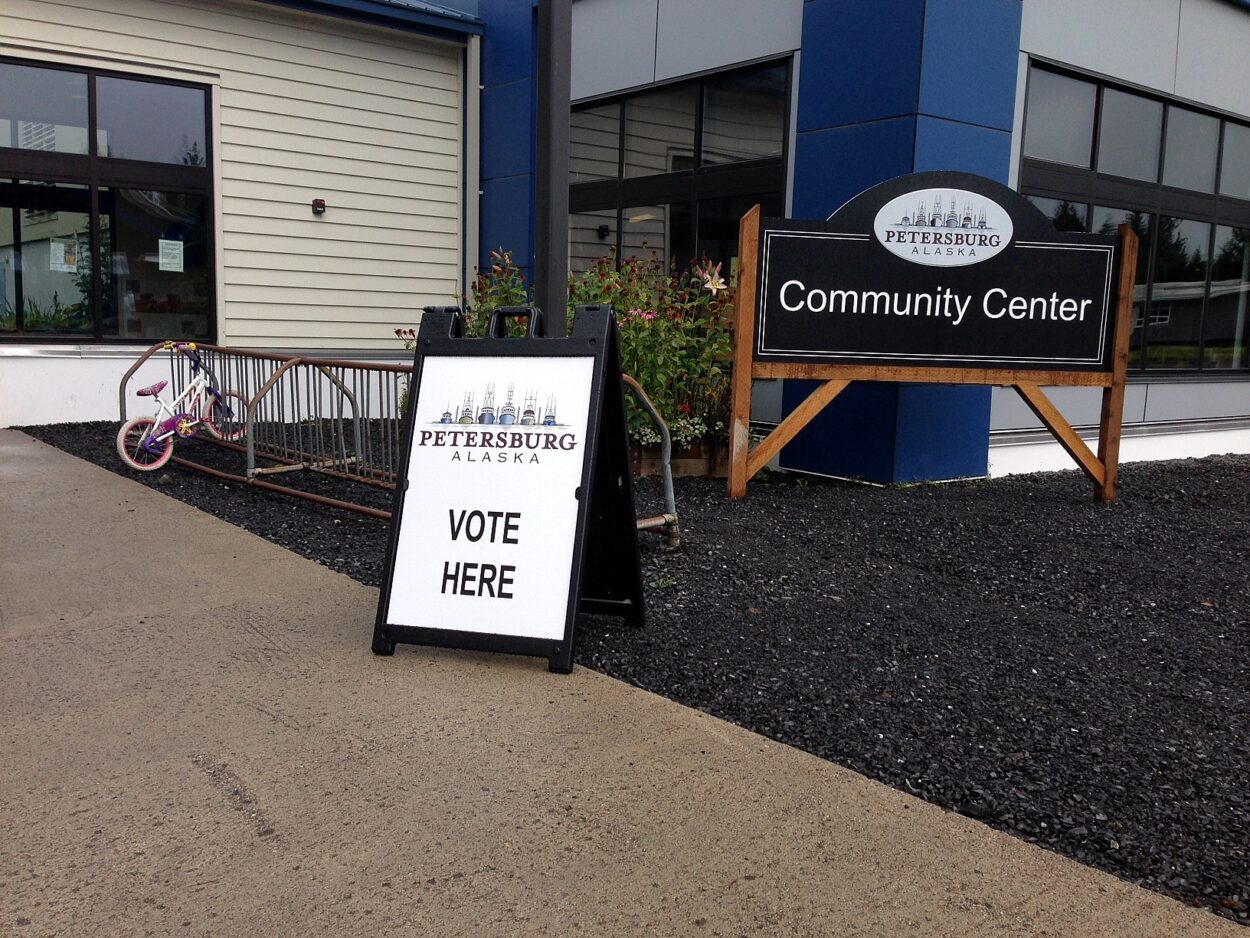
Petersburg voters this October will decide on three changes to the borough’s charter. The borough assembly Tuesday voted to advance three ballot questions on remote utility service, conflict of interest decisions and bidding on borough property by borough employees and elected officials.
The change for utility service would bring the borough’s charter in line with current practice by the local government. It would lower the requirement for getting remote water deliveries, septic pumping, garbage collection and electrical service. As written, the charter requires remote residents to vote on and approve a new tax-supported service area for those utilities outside service area one, or the old limits of the city of Petersburg. That would mean an increase on property tax for that new area, as well as a customer paying the fees for that utility.
Borough manager Steve Giesbrecht explained the proposal would remove the service-area requirement.
“It allows us to provide services outside of service area one for those utilities whereas the charter originally said we couldn’t,” Giesbrecht said.
The borough already extends those services on the Mitkof Island road system to residents and businesses paying for it, without creation of a new service area. And some of that predates formation of the borough in 2013. The petition to form the borough noted that existing remote service but set up the service area requirement for new connections.
That’s one change. Another would keep conflict of interest decisions in-house for the borough’s other elected office holders. The charter currently requires a ruling by the borough assembly if someone holding local office declares a possible financial interest in an issue before a local board or commission.
Assembly member Chelsea Tremblay said the current process could mean a delay for business in front of one of those bodies.
“They don’t meet as consistently,” she said. “An issue comes up in front of them that they need to address then and there. As it stands they would have to delay conversation on that topic until the assembly got to weigh in with our up or down on a member’s participation in the conversation.”
Petersburg’s charter and code prohibit elected officials from taking part in decisions that could benefit them or family members, unless a majority of the assembly says it’s OK. This change would allow the boards themselves to make that decision when needed. That’s the second proposed change.
A third would allow borough employees and elected officials to bid on borough property during an outcry auction. The charter prohibits that for six months after holding office or working for the borough, and for land and equipment valued at more than five thousand dollars. That prohibition doesn’t apply to sale of borough property by sealed bid. It’s an issue that came to light during a recent auction of borough land.
Tremblay thought the proposed change would make local government more transparent.
“Changing it to include outcry that’s actually a much more visible form of participation than a sealed bid,” Tremblay said. “Sealed bid is, there’s a bunch of closed envelopes and then they all get opened one of them ends up being the winner so. Bringing it out in public for everybody to see is actually more visibility not less and that is generally a good thing so I’ll be voting yes.”
The charter language is general, it does not address specific property, but sets the expected procedure for auctions, conflicts of interest and remote utility service in the future.
The assembly passed all three ordinances in third and final reading unanimously with mayor Mark Jensen not at the meeting. That means those questions will appear on the October ballot. So far that’s all local voters will be deciding this year other than filling seats on the assembly and other boards.
Assembly member Chelsea Tremblay is a past intern and current volunteer at KFSK where this story was produced.









